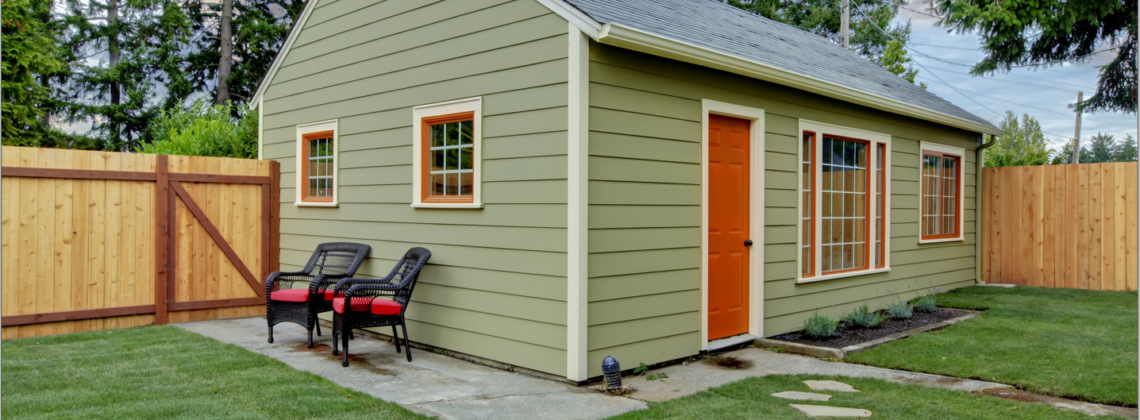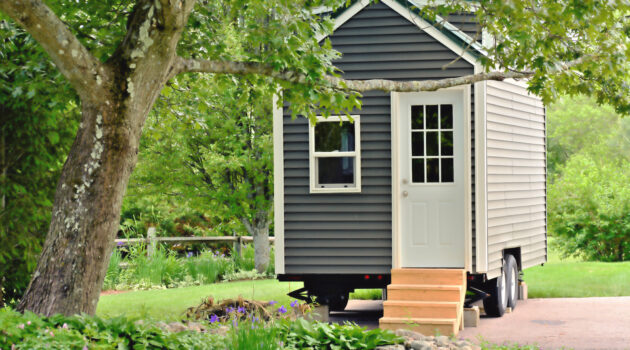
As of July 2023, statistics indicate that there are over 1.53 million real estate agents and only 106,548 active listings, nationwide. It’s a more competitive marketplace than ever. More experienced and knowledgeable agents get more business so adding ADU expertise to your bag of tricks is key. Nationwide housing shortages, high interest rates, and home insurance challenges are keeping sellers from listing and buyers from buying. Meanwhile the need for additional housing escalates. Enter the Accessory Dwelling Unit, which also turns out to be a great selling point for both buyers and sellers. As such, your ability to help your clients navigate the ADU-pathway will make you a more effective, knowledgeable and in-demand agent. Following is ADU 101 for real estate agents:
WHAT AN ADU ISN’T
Often used interchangeably, a “granny flat”, guesthouse or a “tiny home” is not the same thing as an ADU. (More on those later.) The beauty of an ADU is that it takes full advantage of existing infrastructure, so there should be no need for additional sewage or water permits. In most areas, it is legally rentable. Additionally, many regions are encouraging the proliferation of ADUs and have made the process of adding an ADU relatively easy and free of red tape. For property owners, adding an ADU should increase the value of your property. If you are buying, purchasing a property with an ADU in place or with the ability to build one is desirable and can add value to the property in the years ahead. Either way, ADUs can be a great selling point for just about any property.
WHAT AN ADU IS
ADU stands for “Accessory Dwelling Unit.” An ADU is a fully contained, private living space with a kitchen and bath. It can be a separate dwelling with one or more bedrooms, one or more bathrooms, and a kitchen (new construction). Or it can be a converted garage or basement (conversion). It often has an entrance that is separate from the main home. In most cases, there are lot size requirements in order to add an ADU to an existing property and will have a maximum square footage allowance. In California, for example, it can’t be bigger than 1200 sf or 50% of the main home’s size. Most ADUs are legally rentable.
A Junior ADU (known as a JADU) is smaller and built into the main structure of the home. It often has a separate entrance from the outside and also an entrance that leads into the main home. In California, a JADU must have a kitchen but is not required to have a private bathroom and can be up to 500 sf. ADUs and JADUs are permanent structures that are real property and included in the property’s appraisal.
WHAT IS A TINY HOME

The definition of a tiny home is that it is portable. A tiny home is a living space that is on wheels and therefore moveable. It is considered personal property rather than real property, and is subject to vehicle registration fees and sales tax. It is usually not legally rentable and will not be part of an appraisal or a home’s overall value. Examples of a tiny home include campers, RVs, small homes on trailers, and even manufactured homes if they sit on a trailer. A tiny home is not considered a permanent structure. Each local area determines its tiny home rules, with some outlawing them altogether.
WHAT IS A GUESTHOUSE OR GRANNY FLAT

The abbreviated history of the guesthouse stems from our migration into the suburbs which was structured around a “one-lot-one-family” ethos. In order to prevent extra people from living in the backyard, rules were put into place that prohibited guesthouses from having kitchens. Most guesthouses are initially permitted as a bedroom-bathroom set up with a private entrance. In many cases, kitchens are often added later without a permit. Guest homes are usually not legally rentable.
THE CASE FOR ADUs
It would seem there are very few downsides to owning a property with an ADU, buying a property with an ADU, or deciding to add an ADU to an existing property. In most cases, ADUs offer advantages that can far outweigh the negatives. The most obvious negatives might be added traffic to a neighborhood, more cars parked at a particular home, and less parking spaces throughout the neighborhood in general. In addition, if you live next door to a NIMBY (Not In My Back Yard), neighborly relations could be strained. On the other hand, ADUs have the distinct advantages of helping out with the housing shortage, allowing older folks to “age in place”, allowing adult children to have an affordable place to live and be independent, and to create additional income to you, the homeowner. (Learn how to maximize space in an ADU here.)
In real estate, like most things in life, there is always more to know. Become familiar with the local ADU rules that are pertinent to your area and harness that information to better serve your clientele. You have nothing to lose and everything to gain.
